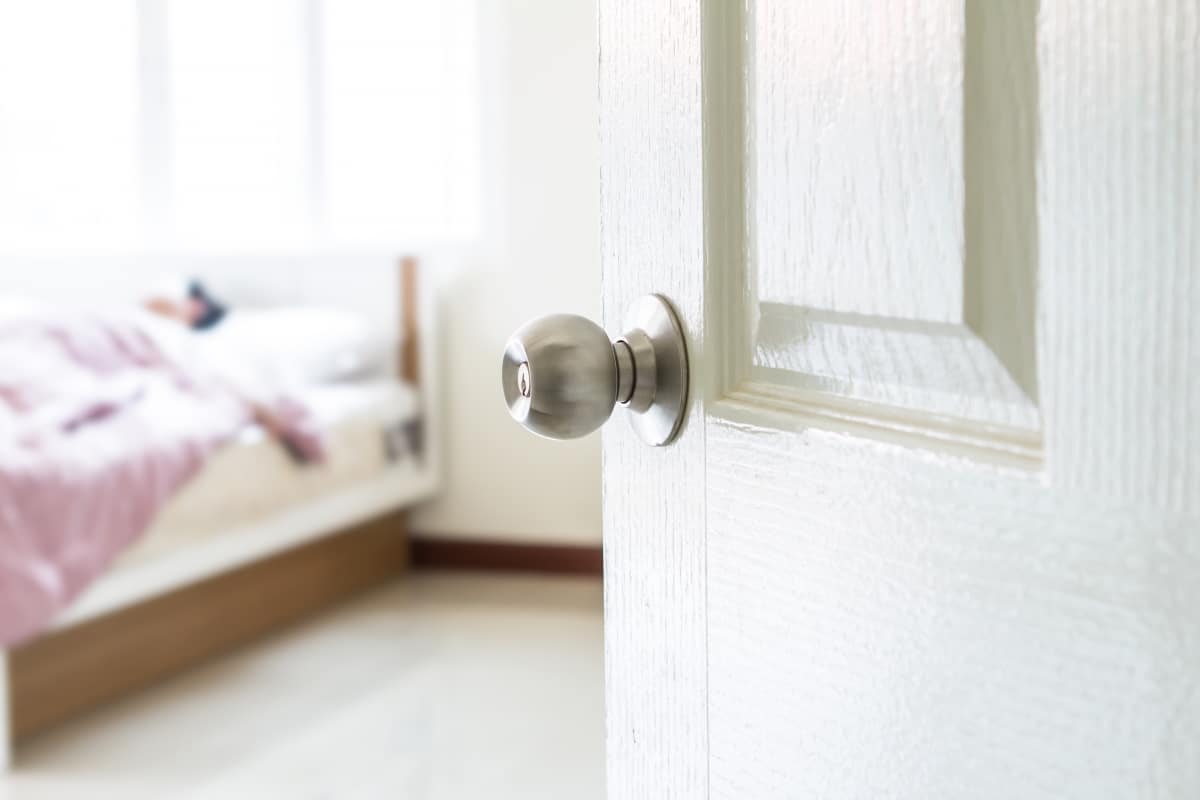Reading Time: 9 minutes
Updated 1st July 2024
You can make up to £7,500 a year in tax free cash if you rent out a spare room. But apart from the tax-free cash incentive, how else could it benefit you?
Let’s examine it in depth:
Who Would be Interested?


So who to rent your room out to? Your first port of call of course should be your friends and family. Renting to them may be more ideal than a stranger, providing you can live with them. But at least you don’t need to worry about not knowing someone.
But if you must rent to someone you don’t know, the location you live should give you a good idea who may be interested in renting your room. Such as:
- Are you close to a university or college? You could provide accommodation for students.
- Or do you live close to an airport? Cabin crew are frequent lodgers as they often move away from home to do their dream job and need somewhere close by to rest their head when they are not travelling.
- If you live in a city or within close proximity to train stations and other good transport links, your property is likely to attract interest from commuters who need a weekday place to stay.
- Do you live in an area that is popular with tourists or has a lot of people visiting for work or study? You could list it for very short amounts of time on Airbnb or a similar site.
- If you live somewhere where there are a lot of English language colleges, you could rent for a few weeks at a time to foreign students, as you can see here.
Furnishing a Room to Rent


Depending on what your room is currently, or was previously used for, you may want to think about furnishing it for ‘rent a room’ use and perhaps re-decorating.
Which means you don’t have to go overboard, but if the room is neutral in decor and contains the necessary amenities then it is likely to appeal to a greater amount of potential lodgers.
Cheap and cheerful furnishing
If your spare room is currently unsuitable for lodgers to move into, furnishing it can be easy and cheap. You may even be able to get things for free, but make sure they are in good condition before you buy them.
Sites like:
- Gumtree
- Snaffleup
- Freecycle
- Freegle
- NextDoor
All these offer free stuff, you just need to be able to pick the items up and take them home.
You’re unlikely to be able to furnish the whole room from such sites, and even if you do, it won’t match. But even if you manage to get a bed, some drawers or a desk, at least this will help towards the cost.
For items that you don’t want or can’t get secondhand, you can pick up simple, co-ordinating furniture relatively cheaply from places like Ikea,
- Amazon
- Furniture Outlet Village
- Ebay
- Argos.
Don’t forget that any expense you have when it comes to furnishing the room will eventually get covered by the rent paid by tenants. You can also put some of it against your income reduce your tax too.
Think about what you’d like if you were renting a room somewhere. Include basics such as:
- Wardrobe
- Chest of drawers
- Bedside cabinet or shelf
- Desk and chair
- Kettle
- Mini fridge
This will help people feel at home and make the most of their space.
Contents Insurance


If you are providing a ready furnished room, you will want the contents protected under the house insurance should anything happen to them through theft or fire, for example.
- The first thing you need to do to ensure your belongings are covered, is to give an accurate estimation of what they are actually worth. Don’t underestimate the value of your belongings just to get a lower premium. If you do this and make a claim, insurers may only pay out a fraction of what your damaged possessions were actually worth. It’s you who’ll lose out in this scenario, so always be honest.
- There are ways in which you can lower the cost of your premiums, for example by installing fire alarms. To compare policies check out this home insurance comparison page.
- The valuation of the contents of the room may include the furniture you have provided with the room. But it may also include the belongings of the tenant. In this case, you will need to wait until you have a tenant before you can fully estimate the value of the room’s contents.
- You will, however, be able to discuss with your tenant whether they would rather add their belongings onto your existing insurance policy or create one of their own. If their items are added to yours, don’t forget to add the cost onto their weekly or monthly rent. This makes sure you don’t have to pay for their belongings on your premium. It’s often easier for them to make one of their own.
- There is a guide for homeowners on the Association of British Insurers website which outlines what you need to include in your estimation. As well as what most insurers will generally cover.
- Make sure you update this list every year when the policy is renewed.
Keep your insurer informed
The second thing you need to do is make sure your insurers are aware of your lodger. Having someone live in your house that you didn’t previously know, and your insurers are not aware of, can invalidate your cover.
This is because should you make a claim for theft, your insurers could challenge it with the fact that you have a stranger living with you.
Advertising your space


This is fairly simple to do:
- First, if you live near to a university, college, ask if you can put some notices around campus.
- Secondly, use sites like
To advertise for free.
- Also, don’t forget your own social media pages. Facebook Groups are particularly good for this.
- Failing these, you could advertise in your local newspaper or put an ad in your newsagent’s window, although both of these will cost you a small fee.
References


Unless you manage to rent your room out to a friend or acquaintance, you are ultimately inviting a stranger into your home to live with you. Ask potential tenants for some references before you give them the keys. Ask for at least two.
These will ideally be previous landlords and workplace references.
Take the time to call them up by phone instead of sending them an email. You’ll be able to get an idea of their authenticity a lot easier if you actually hear their voice.
For previous landlords, you may want to ask some of the following questions:
- What was their address? Use this to check that the reference is actually who they say they are.
- Did they pay their rent on time?
- Did you receive any complaints from neighbours?
- Were you happy with the way they looked after the house?
- Would you rent to this lodger again?
For workplace references, you may want to ask some of the below questions:
- When did they start working for you?
- What is their position?
- What sort of hours do they work?
- Are they full or part time?
- Do they get paid on a weekly or monthly basis?
This will ensure that the lodger is telling you the truth and ensure that their rent will be paid.
Drafting a contract


It’s important to have a contract in place so that there is a written agreement between the two of you. And you can refer to this in the event that anything goes wrong.
- You will need to state the rent amount per week or month, when it is to be paid, whether it is to be paid in cash or by direct debit.
- Which bills are included and how non-included bills will be paid (do they pay 25% of the electricity bill? for example)
- How much notice each side needs to give for the lodger to leave. The legal minimum is one pay period or 28 days, whichever is longer.
- It is reasonable to ask for about a month’s rent in advance. This can also act as a deposit in case of damages. If the lodger decides to move out, and there are no damages, then the deposit can be given back.
- It is a good idea to lay down some house rules in the contract. If you work shifts or have young children, your lodger can’t expect to be up all night watching TV loudly or stumbling in from a night out.
- As silly as it seems, you may want to make it clear that you expect them to tidy up after themselves, it is your house after all.
- If they have any pets, but it’s always a good idea to set some rules on this.
- The same goes for smoking, you may be happy for them to smoke, confine it to their room, or go outside.
- If you have difficulty with them, such as the lodger being continuously late with their rent or they disrespect your home, you can offer a warning. But if trouble continues, they need to leave.
- It will also be a good idea to get next of kin details from your lodger. Just in case.
There’s more info on the rights of both sides when you are renting a room to a lodger on the Gov.uk website here.
You can create your own lodger agreement, or there are a few on the Net that you can use. Here is one, for example, that is useful to copy.
How Much Can You Make?


Under the Government’s Rent-a-Room scheme, you can charge up to £7,500 a year or £3,750 each per year if you’re doing it jointly, without paying tax.
Anything over that, and you’ll have to pay tax. But, if you’re living in London or somewhere else expensive, it’s likely that you will make more than that.
The amount you can make each year will vary a lot depending on what sort of room you have and your location.
Living within close proximity to large cities, educational institutes and places of work will allow to charge a little more than other places.
How to get paid
You need to think about whether to ask for rent on a weekly or monthly basis. If you ask for the rent on monthly basis, you will end up gaining slightly less in the long run than if you receive it on a weekly basis.
But there are a few things you’ll need to bear in mind when deciding how much to charge:
-
Is the room decorated and furnished to a comfortable standard? Is it worth the money?
-
Will the room provide the lodger with a comfortable space? E.g. double bed and room to move.
-
Is there space in the bathroom and kitchen for the lodger to keep their own food and belongings?
-
Is the property within close proximity to train stations, motorways etc?
You’ll also need to make sure that the amount you charge in rent covers the additional cost of electricity and gas bills and any other utilities, unless you will be charging for those on top.
Generally it’s easier to include them in the overall cost. Just work out how much you use on your own and estimate how much more the other person could use. This way you can charge a bit more and justify it, as well as keeping it simpler.
Is Renting a Room for You?


Renting out one of your rooms is not for everyone. There are pros and cons and it depends on you, your lifestyle, your property and how much you need the money, frankly
Pros
Most obviously, this is an easy way of making money without actually doing much work. The money you make can ultimately help towards mortgage costs or any other expenditures.
If you screen potential lodgers properly, you’re likely to end up with someone who will fit into your lifestyle and who you will get along with easily. If you live on your own, a lodger may be excellent company and open up a whole new social life and circle of friends.
It is much easier to remove unsuitable lodgers from your property than it is to remove full tenants, as they do not have the security of tenure. Therefore, should it not work out, and you have outlined details in the contract, it is easy to get them to leave.
Cons
If you like your privacy and can’t bear the idea of sharing your bathroom and kitchen with a stranger, then renting out a room is probably not for you.
Lodgers do have a right to occupy the other rooms in the house and also to invite guests over, at least not without your approval. So if you’re not a people person this might be difficult.
But bear in mind that you could gain a lodger who simply likes to keep themselves to themselves and spends most of their time in their room. Screen potential lodgers properly and everything should be OK.

